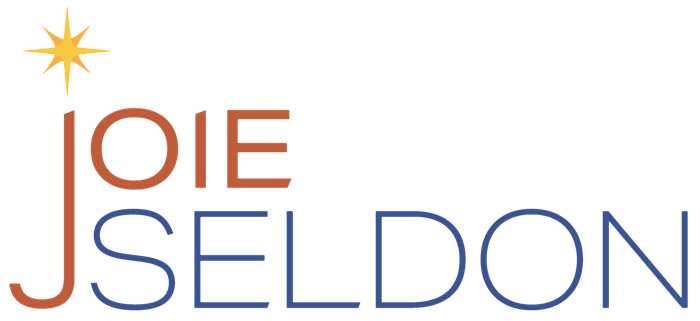
“Courage is not the absence of fear, but rather the judgment that something else is more important than fear.” -Redmoon
Fear is a mistrusted and unappreciated emotion in modern society. It is something to be conquered or avoided at all costs. If you cannot keep from feeling fear, for God’s sake, don’t let it show, lest others think you weak or inferior.
As the saying goes, “Never let them see you sweat!”
But I’m afraid to tell you that all this denial is creating a tremendous amount of dysfunction, not to mention stress, anxiety, upset stomachs, knotted shoulders, drug and alcohol abuse, back pain, hypertension, overspending, and acid reflux…you see where I’m going with this?
What many people don’t realize is that by consciously experiencing and understanding your fear, you can take better control of your life and make choices that are in your best interest, instead of reacting in ways that limit you.
The Challenges of Befriending Fear
There are two challenges at hand that we must face first, though. First, we have lost sight of the fact that we have fear for a reason. Its vital function is to keep us out of harm’s way. It is a biological reaction to a physical threat, and if your life is in danger, your body will respond faster than you can think. This is the fight or flight response.
However, in many situations what comes before fight or flight is freeze. In those situations fear’s message is, “Stop! Pay attention! There might be a threat.” The breath gets shallow, the muscles tense and pull in, and you stop, even if only for a split second, becoming hyper-alert. That freezing happens in order to give you time to assess the situation as to whether or not it is a real threat so you can make the best choice.
Your probably see this in your pets all the time; you yell at them, and they stop dead in their tracks, calculating what comes next.
The problem comes when we perceive dangers that exist only in our imagination, which brings us to the second challenge. Outside of living in a war zone (be it national or urban), most modern-day fears are the result of imagined, rather than genuine, threats to your life.
These fears have far more to do with the unknown, or threats to our ego-self, than anything else. We project onto a situation any number of possible issues: negative past experiences, lack of trust, lack of confidence, insecurities, an anticipation of being hurt, a belief that we have to do ‘it’ perfectly, what others will think of us, potential conflict, and perhaps the most frightening, the loss of connection and subsequent loneliness.
In short, we anticipate the worst, and in return, this negative attitude is profoundly disempowering.
There’s No Need to Be Afraid
The thing is, fear that stems from imagined loss or failure is also calling for our attention. It is telling us that we need to know our selves better. By listening to our fear and letting it point us in the direction that needs attention, we have more choices and more power to take actions that are in alignment with what we really want.
When we let our fears dictate our actions, we limit what is possible. This is not always a simple matter. Sometimes telling ourselves the truth requires major changes. Times when I have paid attention to my fear have resulted in moving to another city, ending a relationship, and committing to marriage (the most scared I have ever been), all of which were tremendously empowering choices.
Can you see how fear is not always negative but, at times, require us to embrace the possibilities that lead to a positive outcome?
More often, we simply need to examine whether or not the thoughts we have are true. Am I really going to die if I ask this person for a date, or quit my job, or express my needs? What’s the worst that could happen? It will have impact, yes, but I won’t die, which is the ultimate fear that’s lurking in the corner.
Don’t Be Afraid of Yourself and Your Abilities
Finally, we all have conscious and unconscious doubts about ourselves, and these are a big part of what fuel our modern day fears. I am not talented enough, rich enough, smart enough, good-looking enough, young enough, deserving enough, thin enough, or lucky enough. We try to ignore or control these doubts because to really look at these beliefs is, well, too scary.
What if these thoughts are true? By avoiding self-reflection we become our own jailors. Holding negative beliefs without examining them is like locking yourself in jail, throwing away the key, and then justifying it by saying, “It might be limiting, but it’s safe.”
You do not have to live like that – in fear, limited in life. Debilitating beliefs about ourselves and long-held emotional pain can actually be diminished by paying attention to our fear. Taking responsibility for our present-time feelings is a vital step in healing our past and becoming the master of our own fate.
You can begin to manage your fear in healthier ways by learning to recognize and tolerate the physical sensations that come with it. Yes, it will be uncomfortable, but I bet not as bad you anticipate. Emotions are meant to flow, and they will move through you if you let them.
It is also important to recognize that your emotion is a feeling you are having, it is not who you are. An emotion is essentially energy with a particular vibration, and its nature is to flow. As you allow yourself to feel the energetic charge of fear, instead of saying, “I’m scared,” say, “Something in me feels afraid.”
Let the adult you are be a witness and companion to the fear, as you would be with a child who is scared. Be curious about it. Let your fear know that you are willing to experience it and to learn from it. Then look at what specifically you are afraid of.
I will leave you with this thought: One way to deal with fear is recognizing that its vibration is similar to excitement. Sometimes it is possible to stay with fear and have it turn into excitement.
Then you can be excited about whatever comes next, instead of afraid of it. Dealing consciously with your fear is also a great way to develop courage. I invite you to have courage, and befriend your fear.
